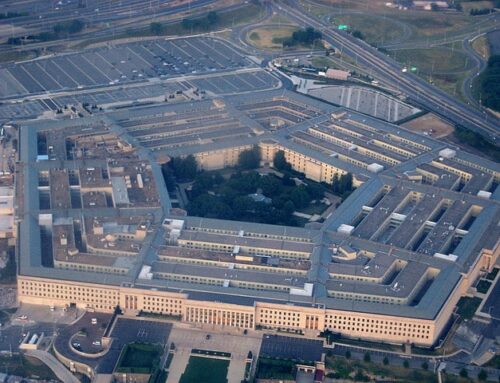This was a big week for budget gimmickry in Washington as the first appropriations bills (the only ones that actually spend money) started to hit the floor of the House of Representatives. Gimmicks are in high demand as Congress continues to struggle with the spending caps they voted into place through the Budget Control Act (BCA) of 2011. Well, technically, they didn’t come up with $1.2 trillion in deficit reduction that they promised taxpayers and that’s what brought about the caps, but we digress.
The gimmick du jour has been to evade the budget caps by stuffing tens of billions of dollars into the off-budget Overseas Contingency Operations (OCO) account in an effort to send more money to the Pentagon (which is already getting $585.3 billion in funding). This slush fund gambit started with the Budget Resolution for Fiscal Year (FY) 2016 (also on the floor this week) and continued with the FY16 National Defense Authorization legislation that passed the Armed Services Committee at about 5 AM Thursday morning. Sadly this budgetary farce has continued as the spending bills are written.
So we were delighted when Representatives Chris Van Hollen (D-MD) and Mick Mulvaney (R-SC) sponsored amendments to cut several overseas military construction projects from the OCO portion of the spending bill for Military Construction and the Department of Veterans Affairs. This seemed like the beginning to a healthy debate over proper uses of the OCO account. Unfortunately, the House leadership stopped debate on the amendments Wednesday night before any vote could occur. There was much speculation Thursday morning that debate was ended because the amendments would actually pass.
At Taxpayers for Common Sense, we have written and spoken against improper uses of the OCO account for several years. Putting more than half a billion in military construction projects in the OCO part of the budget is exactly the kind of thing we believe must be stopped. If these projects in Bahrain, Djibouti, Italy, Oman, Poland, and Niger are important to our national defense, the Pentagon should fund them out of its “base” budget where they are subject to the BCA caps.
Putting these projects in the OCO accounts, simply because they are overseas, is an unacceptable attempt to build them with “free” money from the slush fund. While the projects are overseas, military construction is not a contingency; it is carefully planned for in advance. OCO has been defined so as to strictly limit its use for military construction and is to be used for war fighting operations costs, such as equipment and weapon system replacement. So, unless the Navy is planning to go all Wizard of Oz on ISIS and drop that P-8 hangar directly on the heads of the Wicked Witches of the Middle East, it shouldn’t be in OCO. Placing overseas military construction in the OCO account is a transparent dodge to avoid the BCA caps.
We were joined by our friends at the National Taxpayers Union in sending a letter to the office of every Member of the House of Representatives, encouraging an “aye” vote on these bi-partisan amendments. And we were pleased the House leadership allowed votes on them. Unfortunately, the amendments were defeated – but only by 20 votes. Reps. Mulvaney and Van Hollen have already signaled their intention to continue to offer amendments to reduce the reliance on OCO spending.
We’ll be right there with them, fighting this fight. If lawmakers want to ditch the spending caps, then find offsets – like these – to do it in a fiscally sound manner. Taxpayers deserve better than budgetary smoke and mirrors and gimmicks.











Get Social